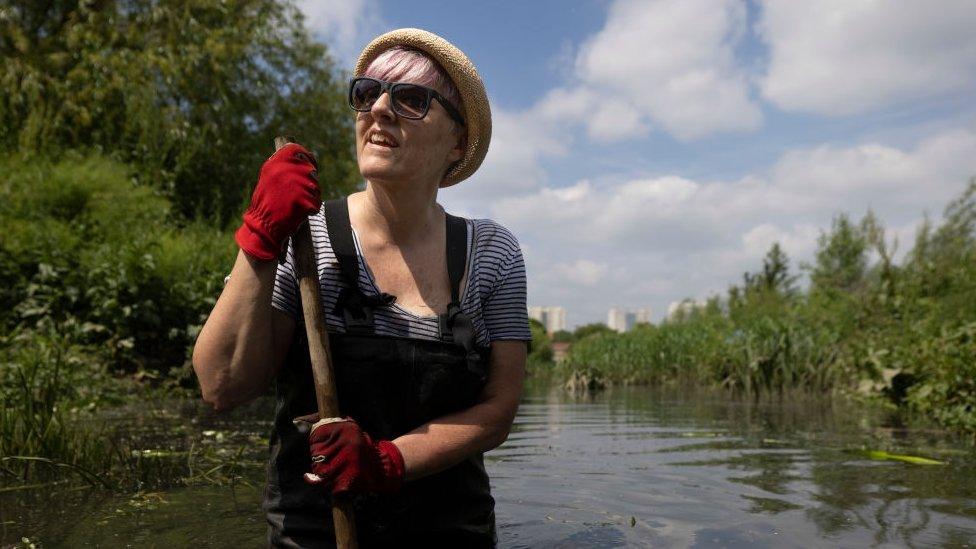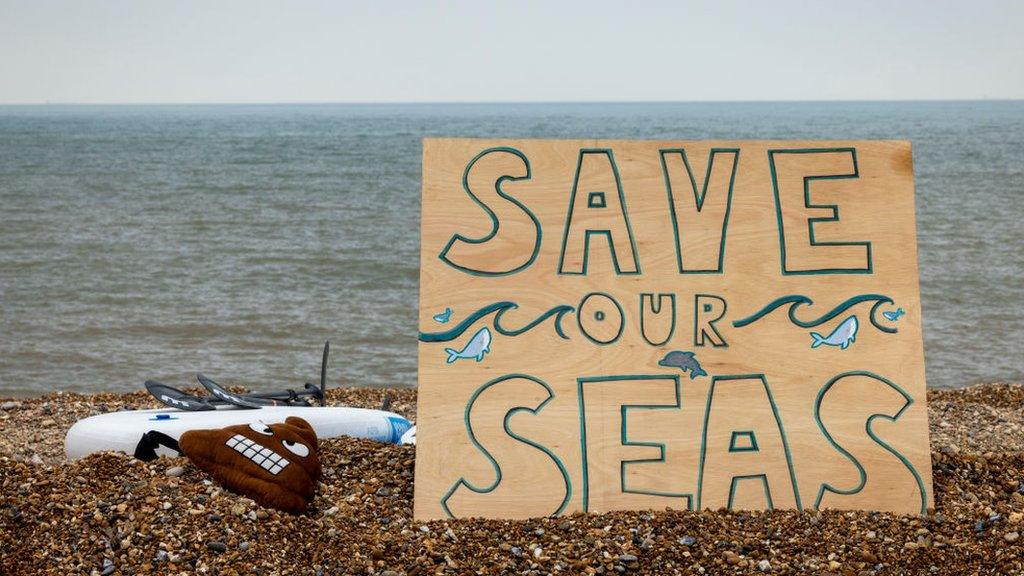Citizen Scientists: 'We're doing it for our children'
- Published
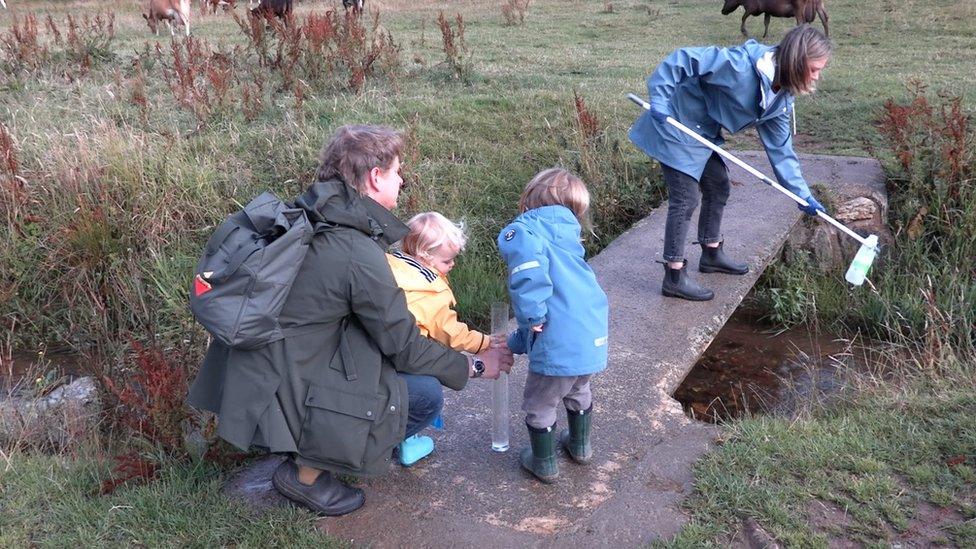
Testing by citizen scientists can bring real change, the Westcountry Rivers Trust said
Clutching test tubes, notepads and wearing wellies, Alice and Olivia and their parents Helen and Erik are on a mission.
Their aim is to sample the water of a stream which meanders through the town of Modbury in south Devon, eventually entering the sea at Mothecombe.
The family, who are acting as citizen scientists, are part of a community group of about 120 people who are monitoring the River Erme and its tributaries for pollution.
Campaigners believe the work could lead to real change in the water quality of British rivers and beaches by raising awareness of problem pollution areas.
According to a report by the Environmental Audit Committee, England's rivers are "in a mess", contaminated by "a chemical cocktail" of sewage, agricultural waste and pollution.
The Westcountry Rivers Trust (WRT) trains citizen scientists to take samples legally and safely.
'Fix things'
The volunteers then record their results and upload them to a map on the WRT website.
Mother Helen said: "There's quite a small, passionate group who have been measuring the local streams and rivers.
"We've all read about the pollution in our rivers and we can see it because I have an app on my phone and I'll get a notification that it's not safe to swim on the beach and the children go on the beach all the time."
She believes citizen scientists can make a difference "if there are enough people who are passionate about it".
"I think you've got to be part of trying to fix things for rivers and streams and hold to account the people and companies that are polluting the rivers and making it unsafe for our children to swim on the beaches," she said.
"No-one's going to make a difference by doing nothing, and you know, we're doing it for them and they love being part of it, they love being involved."
Also among the Holbeton Citizen Science group, also known as the Dippers, is Chris Grey, a retired lawyer who lives near the River Erme.
"We want to know what's going on in our rivers and how we can improve them," he said.
"To lobby we need hard science."
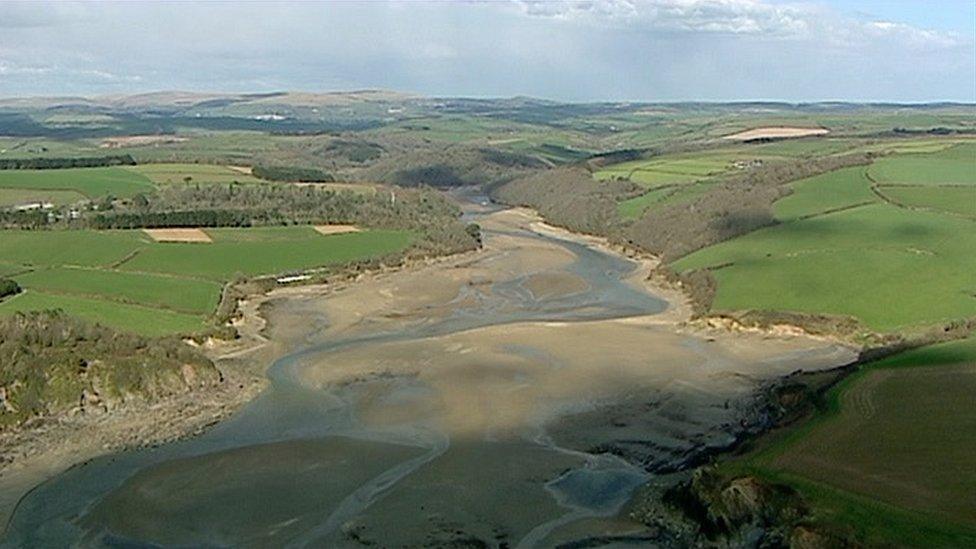
The stream flows into the River Erme which joins the sea at Mothecombe on the Flete Estate
The group is planning to test all the tributaries of the Erme, from Modbury to Ugborough, with the help of landlord John Mildmay-White who allows them access to his land.
Testing is also happening on the River Dart and is expected to start on the River Avon soon.
The rivers can be affected by combined sewer overflows, which are pipes that release untreated sewage into waterways when treatment works are overwhelmed by wet weather.
They can also be affected by run-off from farms, which can carry phosphates and lead to build-up of algae that can kill wildlife, according to the WRT.
Phosphates, chemicals found in fertiliser, sewage and farm slurry are among the pollutants being tested for.
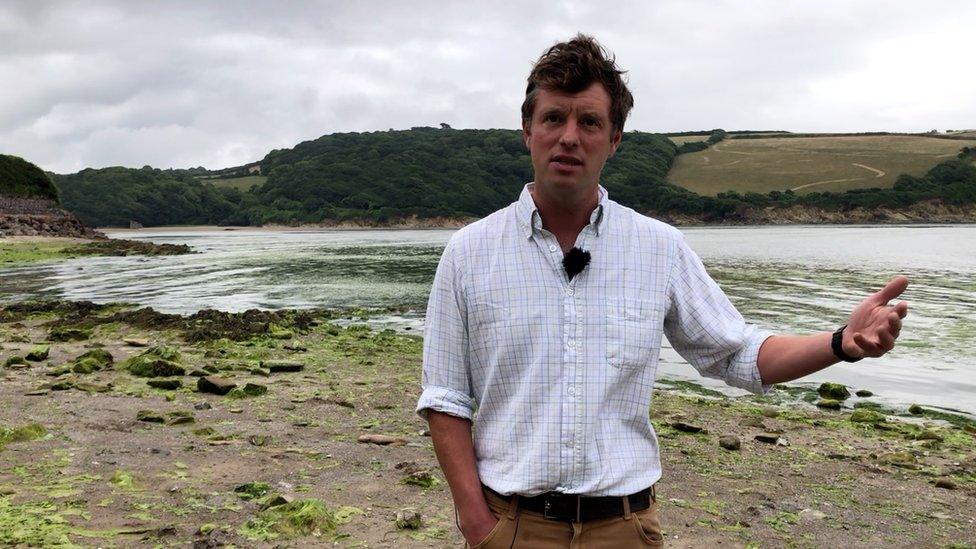
John Mildmay-White, owner of the Flete Estate, allows volunteers access to his land to carry out testing
Downstream from Modbury, Flete Estate landowner John Mildmay-White said the aim of the testing was to start building an understanding of "where do we need to investigate more, which particular stream or brook is changing when it rains and where can we isolate the source of pollution so we can do some more scientific testing".
He added they wanted to improve the "ecological state of the river, but currently we have got issues with the salmon population, the trout population and biodiversity within the water and this all needs to improve".
Pinpointing the problem areas is the work of WRT, which feeds information from citizen scientists into a map that is being used to put pressure on politicians, the Environment Agency and water companies.
Nicola Rogers, from WRT, said: "We don't think at the moment that there's enough testing happening to really tell us about the state of our rivers in the West Country, so citizen scientists can help us fill some of those data gaps.
"And it can do that because the numbers of people that can go out and test their rivers locally, gives us a really big data set which is really informative.
"With that density of data we can lobby their local politicians, their national politicians, anyone who can help them, to drive the change that they want to see to improve the quality of our regional waterways."
South West Water (SWW) said it had "followed the rapid growth of citizen science in recent years with great interest" and it wanted to "expand their citizen science programmes among local communities".
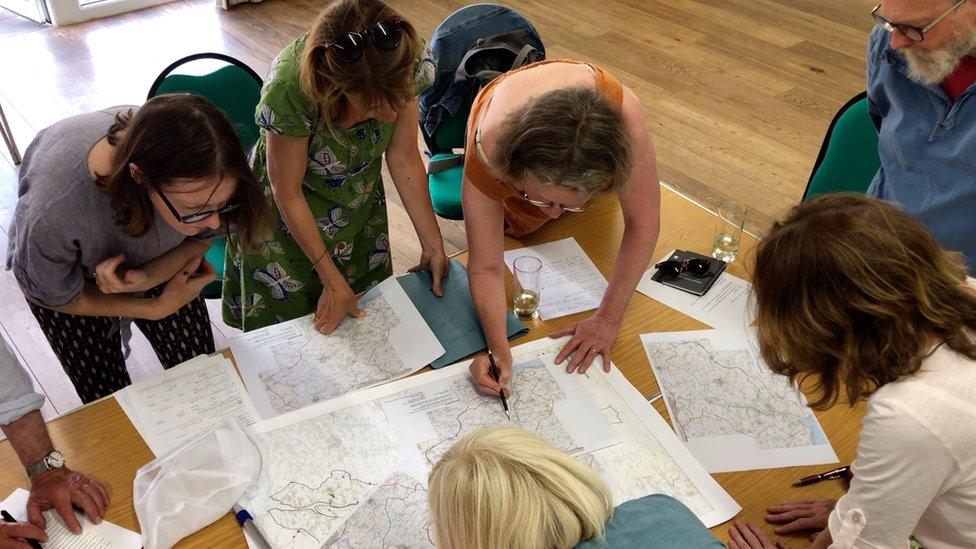
Teams of citizen scientists like these in Modbury are given suggestions for testing sites by the Westcountry Rivers Trust
It added it was working with the trust on its own citizen science scheme.
"What became clear is that, for the citizen-collected data to realise its potential impact, there was an urgent need for greater volunteer training, more robust data collation and analysis, and clearly defined reporting mechanisms," it said.
The Catchment Systems Thinking Cooperative, in which SWW and WRT are partners, was seeking to "create a radical step-change in the contribution of citizen science and community monitoring".
A pilot scheme between SWW, the WRT and the University of Exeter was being set up on the River Tamar and SWW was backing citizen scientists on the River Dart.
An Environment Agency spokesperson said: "The Erme estuary is one of south Devon's most popular local sites for bathing, and holds both Site of Special Scientific Interest and Marine Conservation Zone status.
"We are taking significant action to ensure water quality in the area is maintained.
"Citizen Science initiatives provide invaluable data, which complements our own monitoring and assessment work and enables a greater level of engagement with partners."
People can report suspected pollution to the agency's free 24-hour incident hotline 0800 807060.

Follow BBC News South West on Twitter, external, Facebook, external and Instagram, external. Send your story ideas to spotlight@bbc.co.uk.
- Published1 June 2023
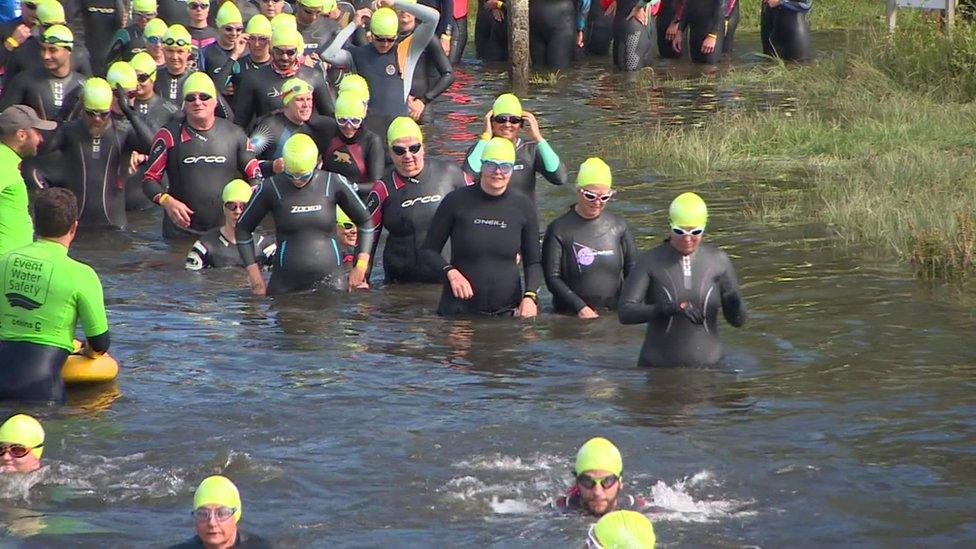
- Published10 April 2023
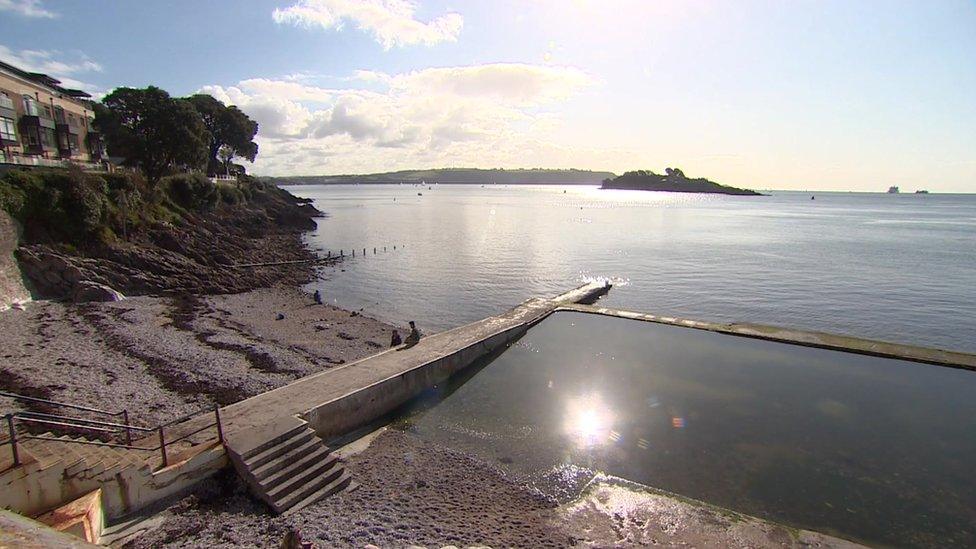
- Published31 December 2022
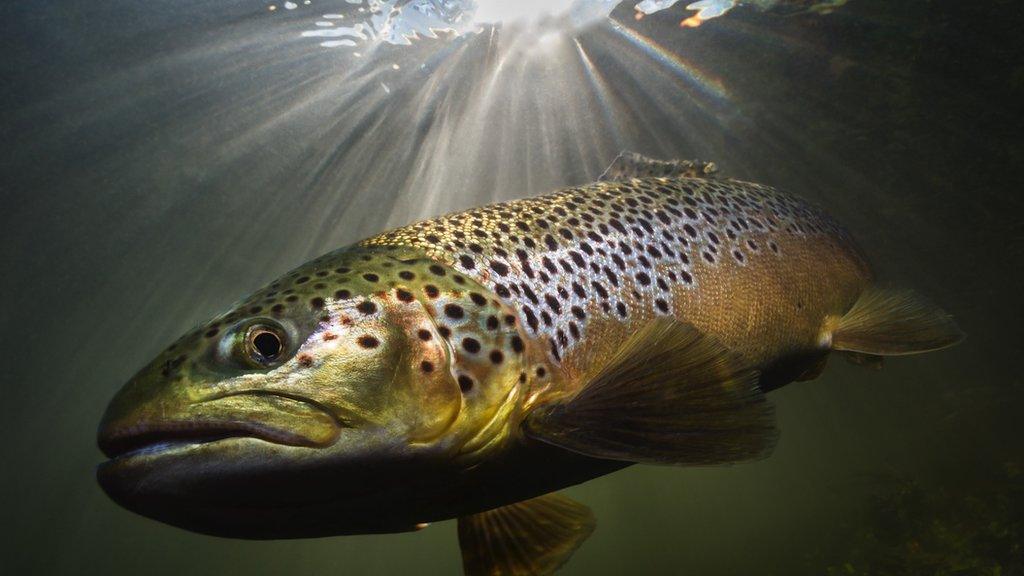
- Published5 May 2022
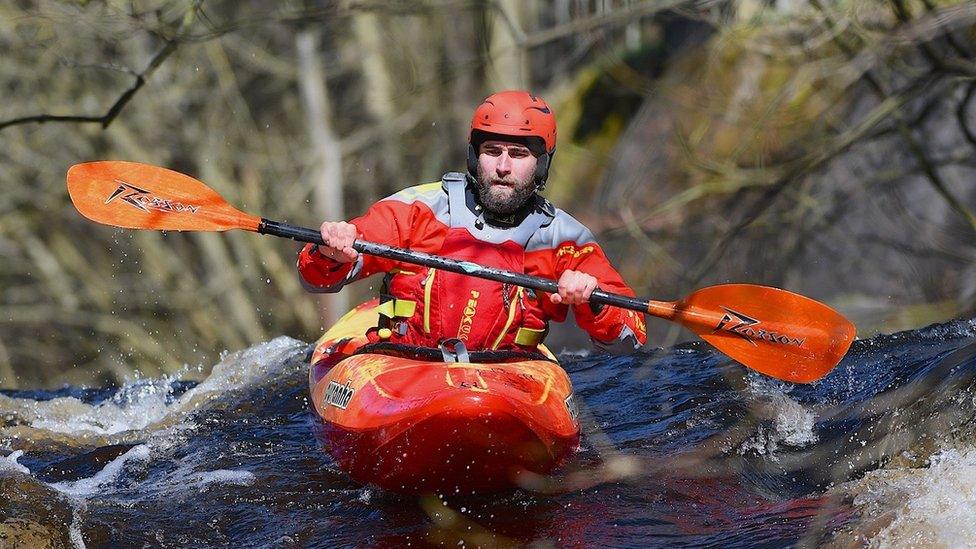
- Published13 January 2022
